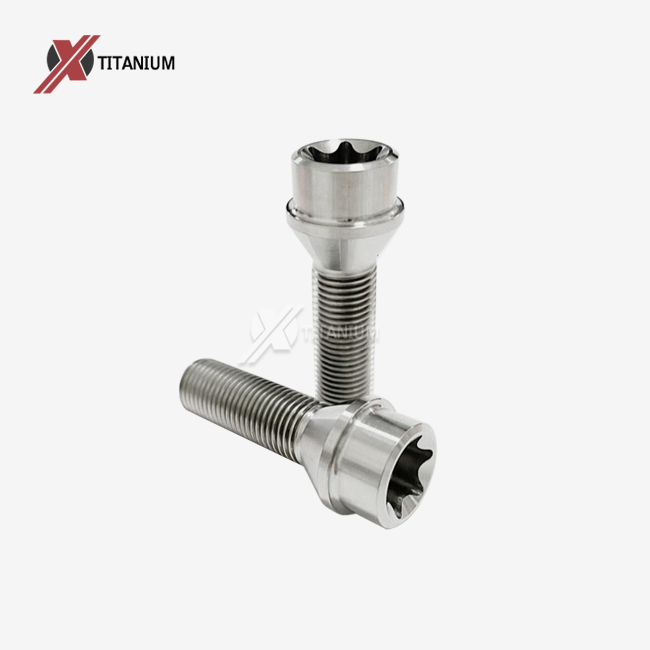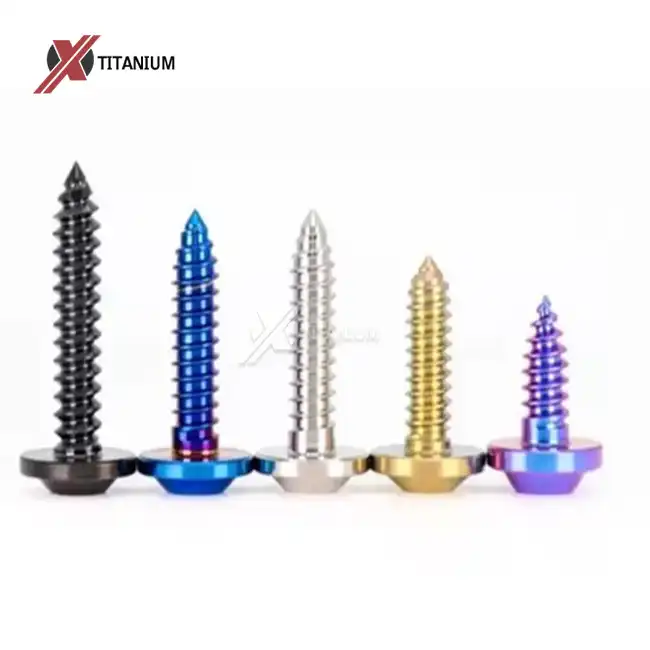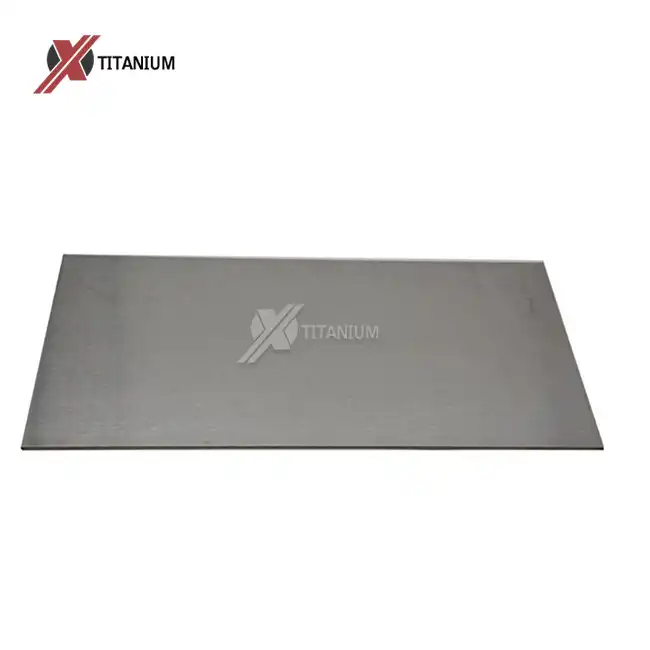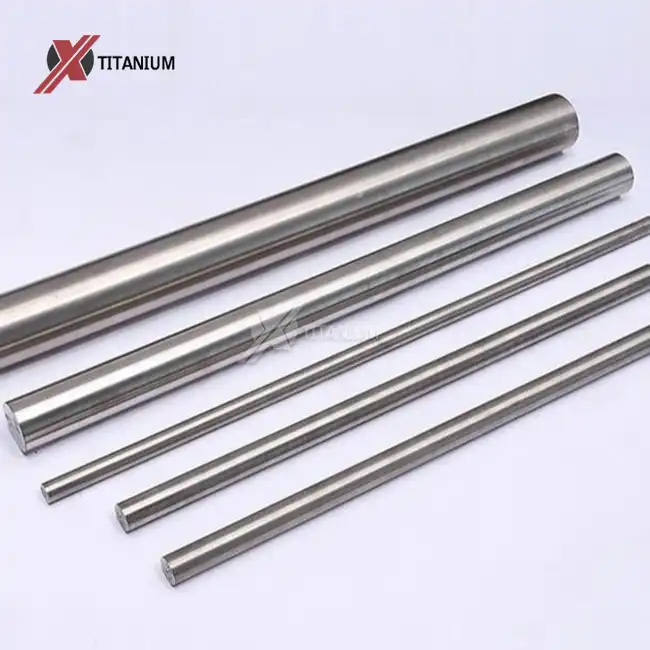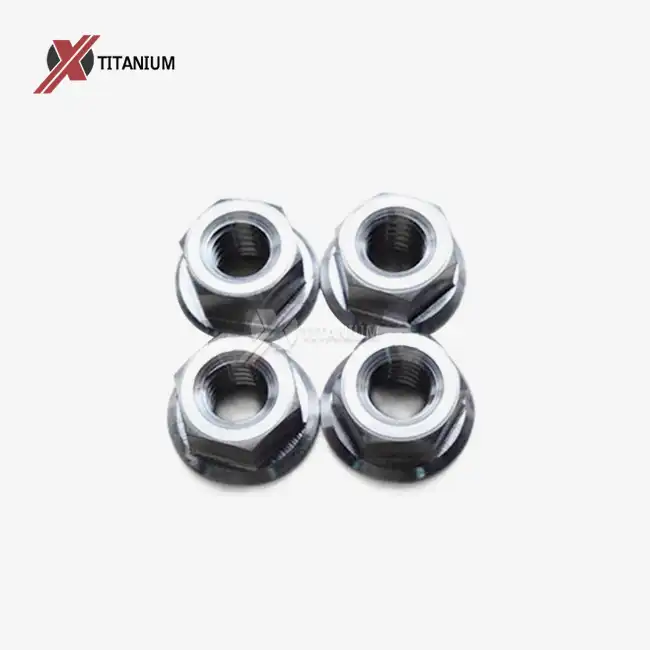The Unmatched Benefits of Titanium Lug Bolts in Marine Environments
Corrosion Resistance: A Game-Changer for Marine Applications
In the challenging marine environment, corrosion is a persistent nemesis for vehicle maintenance. Titanium lug bolts emerge as a formidable solution, offering exceptional resistance to saltwater corrosion. Unlike traditional steel or aluminum fasteners, titanium forms a protective oxide layer when exposed to air, creating a natural barrier against corrosive elements. This inherent property ensures that titanium lug bolts maintain their structural integrity and appearance even after prolonged exposure to seawater and humid conditions.
The corrosion resistance of titanium lug bolts translates into significant cost savings for marine vehicle owners and operators. By minimizing the need for frequent replacements and repairs due to corrosion-related issues, these fasteners contribute to reduced maintenance costs and extended service intervals. Moreover, the longevity of titanium lug bolts enhances the overall reliability of marine vehicles, ensuring critical components remain securely fastened even in the most demanding oceanic conditions.
Lightweight Design: Enhancing Performance and Efficiency
The lightweight nature of titanium lug bolts offers a multitude of benefits for marine vehicles. With a density approximately 45% lower than steel, titanium fasteners significantly reduce the overall weight of marine structures without compromising strength. This weight reduction contributes to improved fuel efficiency, increased payload capacity, and enhanced maneuverability of marine vessels.
In high-performance marine applications, such as racing boats and luxury yachts, the use of titanium lug bolts can make a noticeable difference in speed and handling. The reduced unsprung weight allows for quicker acceleration and more responsive steering, giving vessels a competitive edge. Additionally, the weight savings achieved through the use of titanium fasteners can be redistributed to other areas of the vessel, allowing for enhanced features or increased cargo capacity without exceeding weight limits.
Superior Strength and Durability: Ensuring Long-lasting Performance
Titanium lug bolts boast an impressive strength-to-weight ratio, surpassing that of many traditional marine fasteners. This high strength allows for the use of smaller diameter bolts without compromising load-bearing capacity, further contributing to weight reduction and space optimization in marine applications. The durability of titanium ensures that these fasteners maintain their strength and integrity even under extreme conditions, including high-stress loads and temperature fluctuations commonly encountered in marine environments.
The fatigue resistance of titanium lug bolts is particularly beneficial in marine vehicles subject to constant vibration and cyclic loading. This property helps prevent premature failure and ensures a longer service life for critical connections in engines, propulsion systems, and structural components. The ability of titanium to withstand repeated stress cycles without degradation enhances the overall safety and reliability of marine vehicles, reducing the risk of catastrophic failures during operation.
Advanced Manufacturing Techniques for Marine-Grade Titanium Lug Bolts
Precision CNC Machining: Ensuring Optimal Fit and Performance
The production of high-quality titanium lug bolts for marine applications relies heavily on advanced manufacturing techniques, with precision CNC machining at the forefront. This computer-controlled process allows for the creation of complex geometries and tight tolerances, ensuring optimal fit and performance in marine assemblies. The ability to produce consistent, high-precision fasteners is crucial for maintaining the structural integrity of marine vehicles and equipment.
CNC machining of titanium lug bolts involves specialized tooling and cutting strategies to overcome the material's high strength and low thermal conductivity. Advanced coolant systems and optimized cutting parameters are employed to prevent work hardening and ensure a smooth surface finish. This level of precision manufacturing contributes to the superior performance of titanium lug bolts in marine environments, where even minor deviations in dimensions or surface quality can lead to significant issues over time.
Surface Treatments: Enhancing Corrosion Resistance and Aesthetics
While titanium naturally possesses excellent corrosion resistance, various surface treatments can further enhance this property for marine applications. Anodizing is a popular treatment for titanium lug bolts, creating a thicker and more durable oxide layer that provides additional protection against corrosive elements. This process can also be used to impart different colors to the fasteners, allowing for color-coding or aesthetic customization in marine vehicle design.
Other surface treatments, such as nitride coatings or physical vapor deposition (PVD), can be applied to titanium lug bolts to improve their wear resistance and reduce friction. These treatments are particularly beneficial in high-stress marine applications where fasteners may be subject to frequent tightening and loosening cycles. The combination of titanium's inherent properties with advanced surface treatments results in fasteners that are exceptionally well-suited to the demanding conditions of marine environments.
Quality Control and Testing: Ensuring Reliability in Marine Applications
The production of titanium lug bolts for marine use involves rigorous quality control measures and testing protocols to ensure reliability and performance. Non-destructive testing methods, such as ultrasonic inspection and X-ray analysis, are employed to detect any internal defects or inconsistencies in the titanium material. Mechanical testing, including tensile strength and fatigue resistance evaluations, is conducted to verify that the fasteners meet or exceed the required specifications for marine applications.
Environmental testing plays a crucial role in validating the performance of titanium lug bolts in marine conditions. Salt spray tests, cyclic corrosion testing, and immersion trials are conducted to simulate long-term exposure to marine environments. These tests help ensure that the fasteners will maintain their integrity and functionality throughout their intended service life, even when subjected to the harsh realities of saltwater, UV radiation, and temperature fluctuations encountered in marine settings.
Implementation Strategies for Titanium Lug Bolts in Marine Vehicle Maintenance
Retrofitting Existing Vessels: Considerations and Best Practices
Implementing titanium lug bolts in existing marine vehicles requires careful planning and execution. The process begins with a comprehensive assessment of the current fastening systems and identification of critical areas that would benefit most from the upgrade to titanium. Factors such as load requirements, exposure to corrosive elements, and accessibility for maintenance should be considered when selecting components for retrofitting.
When replacing existing fasteners with titanium lug bolts, it's essential to account for the differences in material properties. The lighter weight and different thermal expansion characteristics of titanium may necessitate adjustments to torque specifications and installation procedures. Additionally, care must be taken to prevent galvanic corrosion when titanium fasteners are used in conjunction with dissimilar metals. Proper insulation techniques or the use of compatible materials in mating surfaces can help mitigate this risk and ensure the long-term success of the titanium lug bolt implementation.
Integration in New Marine Vehicle Designs: Maximizing Benefits
Incorporating titanium lug bolts from the outset of marine vehicle design allows for maximum optimization of their benefits. Engineers can leverage the unique properties of titanium to create lighter, more efficient structures without compromising strength or durability. The reduced weight of titanium fasteners can be factored into overall weight distribution calculations, potentially allowing for larger payloads or improved fuel efficiency.
In new designs, the use of titanium lug bolts can be strategically planned to address known pain points in marine vehicle maintenance. High-stress areas, components subject to frequent disassembly, and regions prone to corrosion can be prioritized for titanium fastener implementation. This proactive approach can significantly extend maintenance intervals, reduce downtime, and lower the total cost of ownership for marine vehicles over their operational lifespan.
Training and Education: Ensuring Proper Handling and Maintenance
The successful implementation of titanium lug bolts in marine vehicle maintenance requires appropriate training and education for maintenance personnel. While titanium fasteners offer numerous advantages, they also demand specific handling and installation techniques to ensure optimal performance. Training programs should cover topics such as proper torque application, the use of compatible lubricants, and best practices for preventing galling or seizing of titanium threads.
Instruction endeavors ought to too center on the long-term benefits and fetched reserve funds related with titanium haul jolts. By understanding the esteem recommendation of these progressed clasp, support groups are more likely to follow to appropriate establishment and support methods. Moreover, information of the interesting properties of titanium can offer assistance professionals recognize potential issues early and make educated choices with respect to latch choice and substitution plans in marine applications.
Conclusion
The adoption of titanium lug bolts represents a significant leap forward in marine vehicle maintenance, offering a combination of corrosion resistance, strength, and longevity that is unmatched by traditional fasteners. As the marine industry continues to seek ways to improve efficiency, reduce maintenance costs, and enhance performance, titanium lug bolts stand out as a proven solution to many common challenges.
By embracing these advanced fasteners, marine vehicle owners and operators can look forward to extended service intervals, improved reliability, and enhanced overall performance of their vessels. The initial investment in titanium lug bolts is quickly offset by the long-term benefits they provide, making them an intelligent choice for both new construction and retrofitting projects.
For more information on titanium lug bolts and their applications in marine environments, please contact us at info@cltifastener.com or djy6580@aliyun.com. Our team of experts is ready to assist you in revolutionizing your marine vehicle maintenance strategies with cutting-edge titanium solutions.
